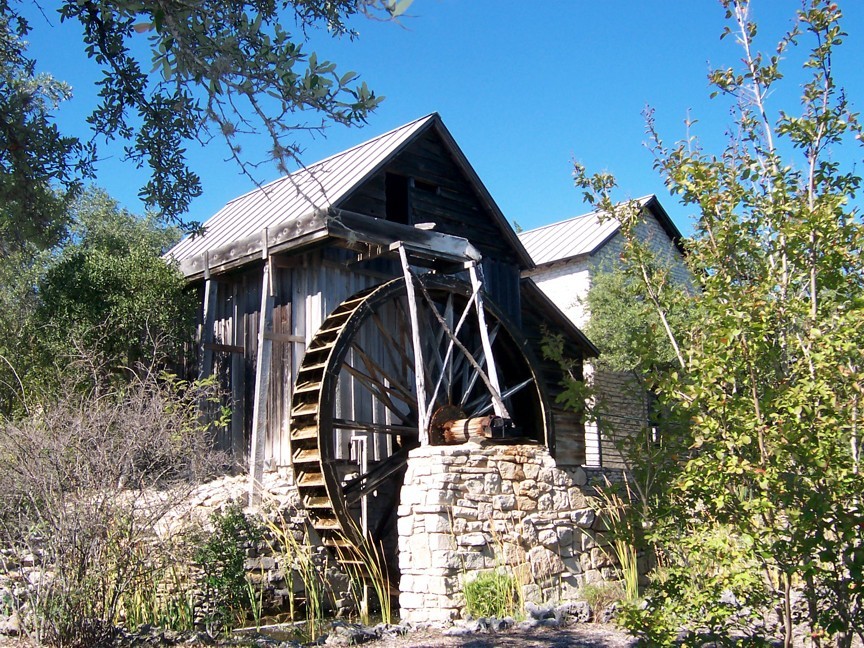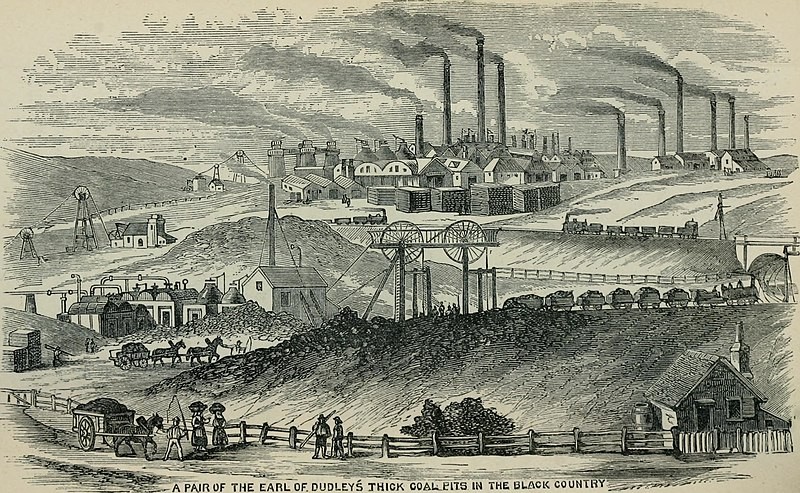The Growth of Industries
Making Clothes
Before the Industrial Revolution, people worked at home on farms or in small workshops. Making cloth was done entirely by hand. Cotton was spun to thread or yarn on a spinning wheel.
In the 1700s, people began buying more and more goods, so textile traders began to look for faster and cheaper ways of producing clothes. The first spinning machine came up in the early 18th century, and by 1780 spinning was done mostly in new factories where workers gathered.

Spinning wheel
Image: Openclipart.org
Steam engine
New machines that were introduced during the Industrial Revolution needed more and more power to work. Up to the 18 th century England got most of its energy from waterwheels that were run by the flow of rivers.
In the 1760s the Scottish engineer James Watt invented the steam engine. It was able to run factory machines and was powered by coal, which was Great Britain’s primary raw material.

Water wheels produce energy
Image: TigerPaw2154 at English Wikipedia, Public domain,
via Wikimedia Commons
Iron making
The Industrial Revolution could not have developed without coal and iron. Coal was needed to make steam engines run and to produce iron. At the beginning of the 18th century, iron makers found a way to extract pure iron out of iron ore. They used coke, which was purer than coal and burned hotter, to melt the ore.
As a result, the iron production increased and by the early 1800s enough iron was produced to make the goods that people needed, like machine frames, water pipes, rails etc.
England’s coal mines boomed during the Industrial Revolution. Miners dug deeper into the earth to find as much coal as they could and in the 19th century England became the world’s largest coal producing country. Most of it came from the Midlands, around Sheffield , Birmingham and Coventry. Because the burning of coal produced a lot of smoke and darkened the skies this area was also called Black Country.

Black Country in the 1870s
Image: Griffiths, Samuel, editor of "The London Iron Trade Exchange",
No restrictions, via Wikimedia Commons